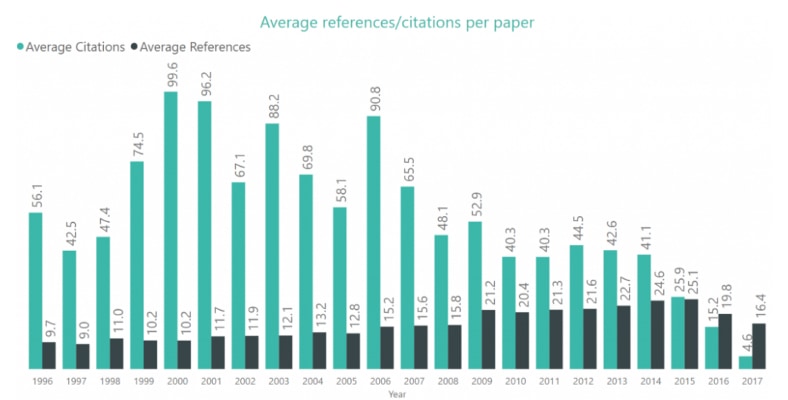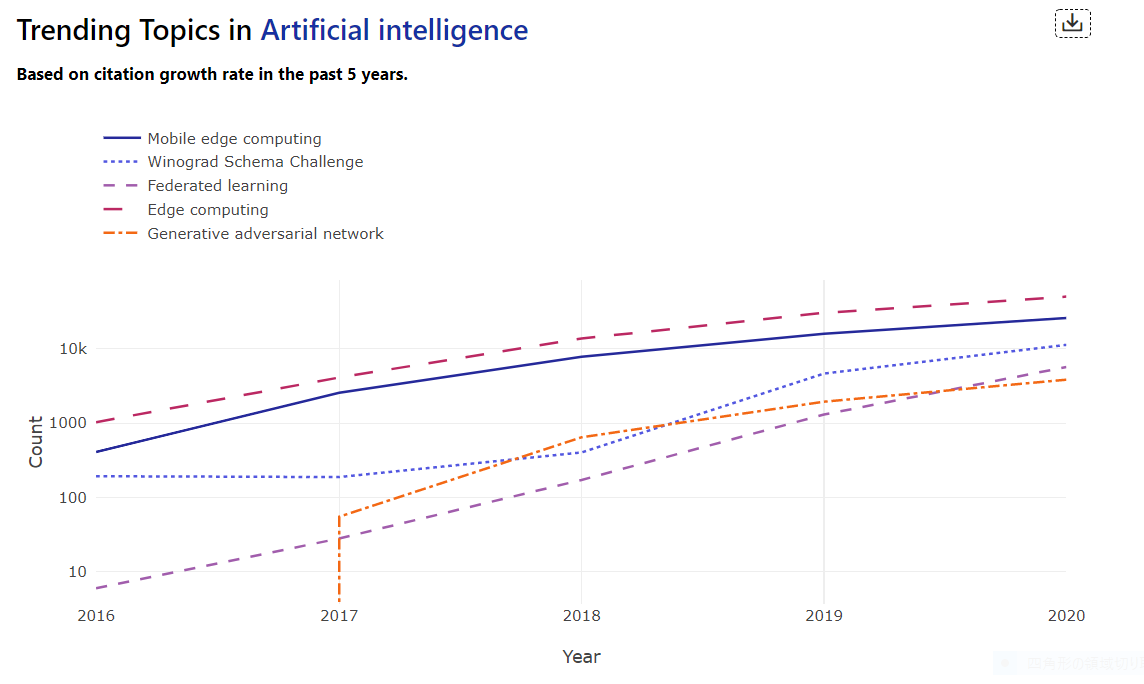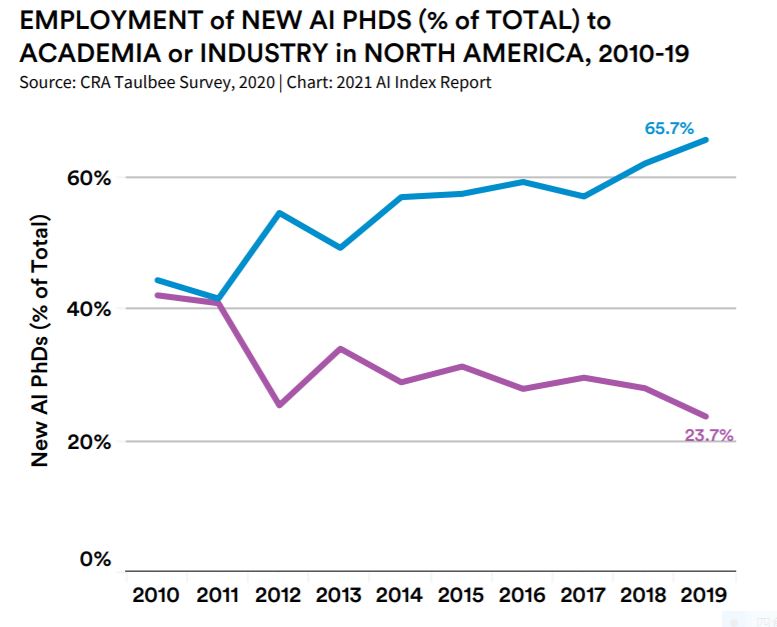Table of Contents
- How i decided
- Level of AI evolution
- How important is your research question?
- What is the impact of a paper?
- changes in the business world
- academia is hard
- Academia strengths
- Conclusion
How i decided
Choosing a career is difficult. Comparing the 5-6 years it takes to get a PhD to the lucrative jobs in the business world makes me wonder about those possibilities. I found myself in a similar dilemma (both times) after graduating from college with an undergraduate degree and a master’s degree.
As many of you know about my career path , I was fortunate enough to be led into a lab during the summer of my sophomore year, where I worked on semi-supervised relational extraction. After that, I worked full time in a lab before entering graduate school. This experience gave me a glimpse into life as a full-time researcher/doctoral student.
But despite that research experience, I joined Microsoft (where I work now) after completing my master’s degree. The decision process was tedious, so I decided to write down my final thoughts. I would like readers to take this article as an opinion (and how and why I made this decision), and before making my own decisions, I would like to ask the business and academic worlds. I highly recommend talking to more than one person.
Level of AI evolution
Working full-time in both academia and business has made me realize something. that is,
Whether in business or academia, you can do exciting things and be part of the AI revolution. It’s just a matter of what level of evolution you want to be involved in.
Do you want to work on porting legacy rule-based systems to ML/DL models? Or do you want to scale up your existing ML regression model to something more state-of-the-art? Or do we tackle more fundamental problems and try to answer questions that will help us build the system in the next 5-10 years (depending, of course, on how it’s applied) rather than now? I asked myself “what level of evolution” I would like to work in from the following two perspectives.
How important is your research question?
Business research is mostly product-oriented
Unless you belong to a pure research group (it’s difficult to be assigned to such a group if you just completed a master’s course, or even if you’re a doctoral student). There is usually a product-related problem setting, and I try to find research related to how to solve it. If there are any new discoveries in the process, we may announce them.
Most research societies in this industry do not consider published papers in the performance evaluation process. Therefore, you basically have to motivate yourself to do research in-house.
If you don’t stick to the problem setting, a study group in the business world may be good.
In my case, I found a research group that actively publishes papers and most of the members have PhDs. The study group suited me very well.
What is the impact of a paper?
ML research is interesting, but not all research is impactful. Let’s look at that in numbers.
The number of AI-related papers published on arXiv increased more than sixfold from 5,478 in 2015 to 34,736 in 2020 . Quantity has definitely increased, but is quality the same?
Below is a graph showing the annual trends in the number of papers cited by NeurlPS. Along with the increase in the number of papers, the average number of citations of papers is decreasing year by year. So if you published a paper on NeurlPS in 2017, the average number of citations, or people using your paper, would be 4.6. This number looks pretty grim to me.

I know some papers are anomalies, and while the average number of citations is not the best measure of a paper’s worth, it is at least a rough estimate of its impact.
While some of the papers I have written have made exceptional contributions (actually leading the field), there are many factors to which I believe I contributed (some of which were my supervisor, The lab I belonged to, the field of study, and the state of mind I was in when I was working toward my PhD).

changes in the business world
In 2019, 65% of North American AI PhDs entered the business world, up from 44.4% in 2010, indicating that the business world is beginning to play a greater role in AI development. It became a relief (*translation note 2).
When I worked as an applied scientist at Amazon, everyone on my team had PhDs. As I got to know them better, I realized that a master’s student could do something similar.
The boom in AI development over the past few years has been phenomenal. A lot of engineering is required to make a great product, but it requires the skill of reading papers and thinking of use cases to apply the contents, or first of all, there is already a use case and solving the problem that the use case has Ability to read papers is required.
In fact, not all Ph.D. holders with machine learning PhDs go on to research positions.
What if, after completing my PhD, I worked in a place similar to the group I’m in now? I wouldn’t have found much meaning in the whole process (before I got my Ph.D.).
Pathways for AI PhDs in North America

Furthermore , the percentage of international students from outside North America among new AI PhD holders is increasing, reaching 64.3% in 2019 (see graph below).
Percentage of international students among new AI Ph.D. holders in North America
Also, 8.6% of non-North American international students with PhDs in AI found employment outside of North America , compared to 81.8% who stayed and found employment in North America (see chart below). The report suggests that North America is gathering the world’s AI PhDs .
Employment Places for International PhD Students in North America
academia is hard
To be honest, life in academia is hard. These difficulties are as follows.
- Team cannot be changed. At least you can’t change teams as frequently and easily as in the business world.
- We have to deliver high quality commitments in 5-6 years.
- Good research is very difficult and requires perseverance.
- Good research, I think, depends a lot on a lot of other factors than just how hard you try. The most important thing is the relationship between the supervisor and the instructor. I’ve seen a lot of smart people frustrated and stressed out about their relationship with their academic advisors. My biggest fear is to find myself in a similar position.
- Perks and salaries – It feels like the public still doesn’t respect researchers. There is no university-sponsored retirement plan, no stock benefits, and he cannot even comment on why PhDs are paid so little. I don’t know when this situation will change, but I didn’t want to be part of such a system at the time when I was worried about my career path.
But despite these factors, I have a high regard for people working in the academic world. I understand that researchers are looking for novel ideas and are tackling fundamental problems. I can sympathize with the intellectual simulation that goes around my head when I find out the truth of the problem!
Academia strengths
When I have to do particularly mundane tasks in my day job (welcome to the business world), I still think about going back to academia. Working as a PhD has many advantages, including:
- Own your paper – your paper is yours and will be cited in your name. If you want ownership of your paper, it’s very difficult in a large company with hundreds or thousands of people involved in one product.
- Intellectual simulation – I think this is the reason why people aim for Ph.D. There is joy in researching as a doctor, discovering something, and finding answers to unanswered questions.
Conclusion
At the end of the day, it’s all about working on exciting subjects. It doesn’t matter if the theme is related to products or research. I don’t know if I will get a PhD in the future. But even if it does, I’m sure we’ll be better prepared. My experience in the business world will give me the necessary perspective on what matters and what matters.

